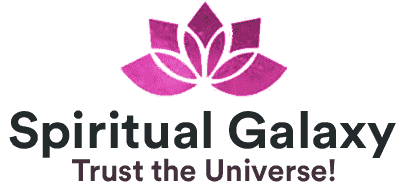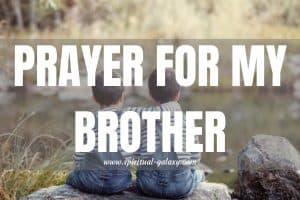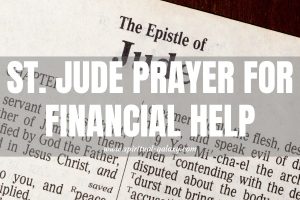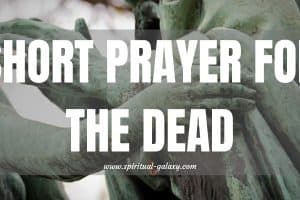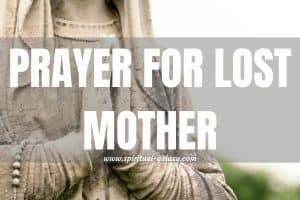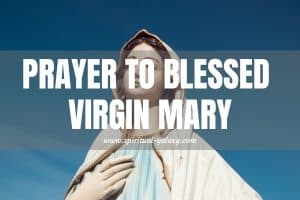Disclosure: This post may include useful product links. Buying through these links may earn me a commission at no additional cost to you. Read my affiliate disclosure.
Ogun is one of the earliest divinities and is known as the Orisha of Iron, and by extension, he is the God of War and Hunting. He is Osin-Imole, or the chief among deities.
In traditional beliefs, Ogun is the first primordial Orisha to come down to Earth to check if it can sustain human life, as described in some Orishas praise and songs.
In other tales, Ogun lived his earthly life as the first king of Ife (an ancient Yoruba city in southwestern Nigeria, now located in the Osun State). He was a heroic leader known to have fought for the people in a place called Onire.
It is said that when some of his subjects show disrespect or anger him. He then have them taste his own judgment by, unfortunately, killing them and eventually killing himself.
However, many of his followers believe that Ogun didn't die. Instead, he disappeared from the surface of Earth, ascending to a place called Ire-Ekiti.
Despite his disappearance, he promised those who would call his name would be looked after. Likewise, those who remain loyal to him asking for his help will be protected and have their prayers answered, like those who pray to Goddess Oshun or Obatala
Ogun has always had his metal axe as a weapon to free the path he is walking in the forest while hunting and to defend himself. It is the same axe he used with the assistance of his dog to open and clear the paths for other Orishas to enter Earth.
People started to worship Ogun at the beginning of the Iron Age and the time of ironwork in West Africa. Iron and ironwork are considered to be one of the most sacred practice as it replicates the way of God's act of creating the world.
The melting of iron is associated by African people with fertility, creative power, and vitality, serving as a symbol of the female womb. The beliefs and practices ultimately show how people venerated Ogun not just as the Orisha of Iron but he is seen as the traditional deity of blacksmiths, hunters, war, technology, civilization, and drivers in the Yoruba Land.
His followers are mostly people with an occupation related to metal that uses objects with iron, such as farmers, surgeons, barbers, butchers, soldiers, haircutters, mechanics, drivers, and hunters paying their respect and tributes to Ogun.
Many festivals are celebrated under the name of Ogun, honoring his divine spirit. The most common festival is the Ogun Festival in Ondo.
Ogun festival in Ondo is celebrated yearly between the months of August and September. He is revered and celebrated yearly to honor him, receive his favor, and believe that he maintains peace in society.
Ogun's symbols are iron, usually depicted as a sword or blade, palm fond, and a dog, his companion helping him during hunting. Although he is known for his identity being linked to warfare and as a violent destroyer, Ogun also has a deep connection with nature.
His colors demonstrate both war and nature—color green, black and red. Ogun is known as a leader delivering justice to society.
When humans try to break the law of nature and disrespect it, he brings justice to the injustice they brought to nature. And so, many feared him, enough reason for people to associate his personality as doglike-as straightforward, aggressive, fearless, strong, guarding, and firm.
He may appear fearsome or as a severe figure, but his judgment is always with good reasons and morals where it can be beyond any human understanding.
Ogun reflects the internal conflict of human life and presides over the cycle of creativity and destruction; and the cycle of life and death as depicted in praise poems.
Ogun is timeless. He may represent iron, but before the iron was invented, Ogun existed.
Praise and Honor Ogun with Oriki
Oriki is a prayer of praise, a poetry of indigenous Yórùbá communities of Western Africa written in a Yoruba verbal art form. It is usually written to praise deities such as Ogun and pray for their salvation.
The word Orikiis a Yoruba greeting of the word orí, meaning “head,” and “kì,” meaning to greet or praise or to greet in the form of song or chant. It is expressed by a drum (“gangan”), reinforcing the tonality of the chant.
Through Oriki, the Yoruba people speak celebratory words to praise and honor an individual and affirm your connection to something greater.
It is said that the praise poem is sung and played by the indigenous people until one of the spirits that are called takes possession of one of its worshippers.
Recite the following Oriki to praise Ogun, the Spirit, and Deity of Iron, in the traditional language of Yoruba and English transition.
Oriki Ogun- Praising the Spirit of Iron
Ba san ba pon ao lana to. Bi obi ba pon ao lana to. B'orogbo ba pon ao lana to.
B'yay ba pon ao lana to. B'eyin ba pon ao lana to. Da fun Ogun awo.
Ni jo ti ma lana lati ode. Orun wa si is salu aiye. Fun ire eda.
Ase.
Translation:
You might also find this article interesting: The Secret to Attracting Wealth: Traits the rare billionaires share!
Cut down the obstacles on the road. When the cola nut is ripe it opens the road. When the bitter cola is bitter it opens the road.
When the fruit is ripe it opens the road. When the palm fruit is ripe it opens the road. The Spirit of Iron gives you his secret.
Dancing outside opens the road. Heaven comes to Earth. For the benefit of all people.
May it be so.
Oriki Ogun- Ogun is in Seven Paths
Ògún méje logun mi,
Ògún alára ni n gb’aja,
Ògún onire a gb’àgbò,
Ògún Ikọla a gb'agbín,
Ògún gbengbena oje ìgí nìí mu,
Ògún ila a gb’esun iṣu,
Ògún akirin a gb’awo agbo,
Ògún elémono ẹran ahùn ni jẹ,
mákindé ti dogun lẹyin odi,
Bi o ba gba Tapa a gb’Aboki,
A gba Ukuuku a gba Kèmbèrí.
Translation:
My Ògún manifest in seven different ways
Ogun of the town of Ilara accepts a dog atonement
Ogun of the town of Ire accepts a ram atonement
Ogun of the town of Ikole accepts a snail atonement
Ogun of Gbenagena drinks tree sap for atonement
Ogun of the town of Ila accept yam seeds atonement
Ogun of the Akirin people accepts ram fur atonement
Ogun of the Elemono people eats tortoise meat for atonement
The brave that wages foreign wars
He will consume either Nupe, or Hausa
He consumes foreign people, He will consume the Kanuri too.
Oriki Ogun – Praising the Spirit of Iron
Ogun awo, Olumaki, alase a juba.
Ogun ni jo ti ma lana lati ode.
Ogun oni're, onile kangun-dangun ode Orun, egbe l'ehin,
Pa san bo pon ao lana to.
Imo kimo ‘bora, egbe lehin a nle a benge ologbe.
Ase.
Translation:
Spirit of the mystery of Iron, Chief of Strength, the owner of power, I salute you.
Spirit of Iron dances outside to open the road.
Spirit of Iron, owner of good fortune, owner of many houses in Heaven,
Help those who journey,
Remove the obstructions from our path.
Wisdom of the Warrior Spirit, guide us through our spiritual journey with strength.
So be it.

